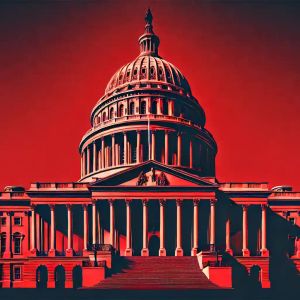Senator Cynthia Lummis is at the forefront of Bitcoin advocacy in the U.S., representing Wyoming in the Senate. She has been a strong proponent of integrating Bitcoin into national economic policy, with her most significant initiative being the Bitcoin Strategic Reserve , aimed at enhancing financial stability. Recently, she was appointed chair of the Senate Banking Subcommittee on Digital Assets, a key position in shaping Bitcoin-related regulations. At Bitcoin 2025 , Lummis will discuss Bitcoin’s role in financial reserves, U.S. policy, and regulatory developments. Ticket prices are set to rise this Friday, but a special Valentine’s Day promotion offers a discount with the code BTCBAY . Reflecting on Bitcoin 2024 , Lummis shared her surprise when President Trump publicly endorsed the Bitcoin Strategic Reserve before she even spoke. His support indicated a major shift in policy discussions, reinforcing Bitcoin’s potential role in the U.S. economy. Trump has since remained a strong advocate, even proposing a sovereign wealth fund based on Bitcoin. Lummis is also spearheading a newly established Senate subcommittee on digital assets. While key policymakers, including Chairman Tim Scott, the Treasury Secretary, and the Vice President, acknowledge digital assets' importance, many lawmakers still need education on Bitcoin. To address this, she is prioritizing a stablecoin bill to lay the groundwork for more comprehensive digital asset legislation. One of the major challenges facing Bitcoin businesses is Operation Chokepoint 2.0 , where financial institutions were pressured to cut ties with crypto-related companies. Lummis is leading efforts in the Senate to investigate these actions and ensure protections against future disruptions. On the Bitcoin Strategic Reserve, discussions are ongoing about whether Trump could use executive action if Congress resists the proposal. The U.S. government already holds approximately 200,000 BTC from asset seizures, managed by the U.S. Marshals. Lummis is proposing that these holdings be transferred to the Treasury as the foundation for the Bitcoin reserve. Additionally, she is exploring whether outdated U.S. gold certificates could be revalued and converted into Bitcoin. State-level initiatives are also gaining momentum. Pennsylvania, Texas, and Wisconsin are actively considering the creation of state-based Bitcoin reserves. Internationally, the UAE and other nations are looking into similar strategies, increasing global interest in Bitcoin’s role as “digital gold.” By Bitcoin 2025 , Lummis expects tangible progress. With regulatory obstacles being exposed and state-level Bitcoin reserves moving forward, Bitcoin’s position in the global financial system will strengthen. While some policymakers remain skeptical due to Bitcoin’s decentralized nature, Lummis believes it can support the U.S. dollar and reduce national debt over time . She looks forward to Bitcoin 2025, where the focus will shift from "what could be" to "what is."













